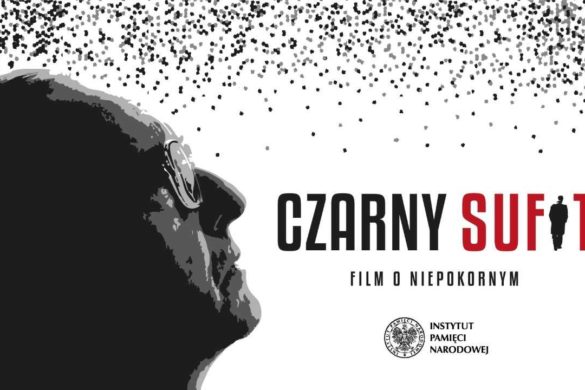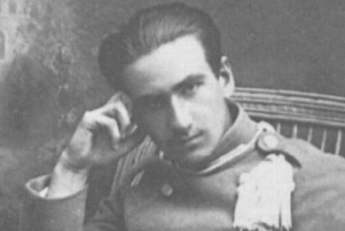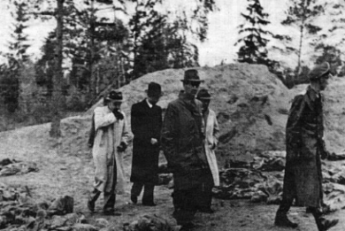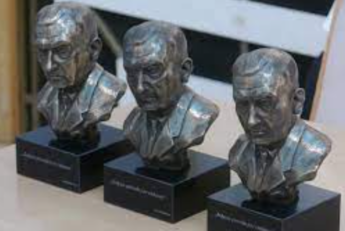
“Black Ceiling” – the story of Józef Mackiewicz in the film
The year 2022 was the year of Józef Mackiewicz. At the end of the year commemorating the famous publicist and historian, the Institute of National Remembrance prepared the first ever feature film about Józef Mackiewicz and his wife Barbara Toporska.
Until now, no movie based on the novels of this famous character has been released. However, Józef Mackiewicz deserves his name to be on the pages of history, and his figure to be brought closer to a wider group of Poles. The Institute of National Remembrance decided to end the year of Józef Mackiewicz with the premiere of the film “Black Ceiling”, which is to bring the audience closer to the figure of the famous publicist. The premiere took place on December 14, 2022 at the National Film Archive – Audiovisual Institute in Warsaw.
“Józef Mackiewicz was one of the first Poles – next to Ferdynand Goetel and Jan Emil Skiwski – who saw the corpses of Polish officers in Katyn. In 1952, he testified before a special committee of the US Congress investigating the Katyn massacre. He published hundreds of memoirs and political commentaries. He did not recognize the People’s Republic of Poland as a legal form of Polish statehood. He was constantly criticized by some Home Army circles in exile for his negative assessment of the Home Army Headquarters’ policy towards the USSR during the war and for his uncompromising anti-communism.
It is worth mentioning that Józef Mackiewicz was the writer whose books were never legally published during the Soviet era. Due to his controversial political views, no film based on his books has been made so far.
“His books were published only by emigration publishing houses or in the second circulation (51 items in total). He believed that truth was more dramatic than fiction. He combined fiction with documentaries, mixed reportage and scenic character in the narrative, panoramic and personal presentation of events, pedantically presented natural, historical and local details, he also had an excellent sense of spoken language. With his writing, he proved that both German Nazism and Soviet communism are the epitome of evil.
The action of the feature film takes place in 1968 in Munich, where the writer and his wife Barbara Toporska emigrated due to the communist authorities ruling his country. It is worth noting that the action takes place just after the intervention of the Warsaw Pact troops in Czechoslovakia.
Jerzy Giedroyć, the editor of the Parisian “Kultura”, appears in Mackiewicz’s house. Although this meeting never really took place in reality – the filmmakers used this procedure on purpose. This meeting allowed the creators to present the controversial figure of the publicist and his views on the then international power, the condition of People’s Poland, and the communist system.
The film resembles a dialogue between two writers, where Giedroyć is rather a patient listener. The dialogue aims to bring the figure of Józef Mackiewicz closer, especially to the young generation, and to show his views on the communist system, the church and all the reforms that are taking place.
The role of Józef Mackiewicz was played by the Polish film and theater actor Marek Kalita. Agnieszka Wosińska played Barbara Toporska-Mackiewicz’s wife, and Krzysztof Stroiński played Jerzy Giedroyć. The director of the film is Arkadiusz Biedrzycki.
You can watch the film for free on the YouTube channel of the Institute of National Remembrance.







